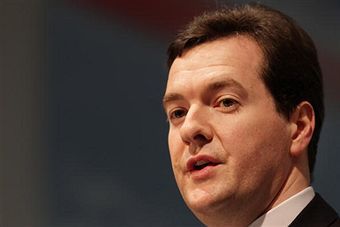 The Tories now have a clear message on personal taxation, ‘you’ll pay less under the Conservatives.’ Their announcement today that they will reverse, for seven in ten workers, Labour’s increase in the tax on jobs is welcome news. As I said in the Mail on Sunday, turning the spotlight on the National Insurance hike shows that Labour’s tax rises aren’t just going to hit people who earn more than £150,000 a year who are going to buy a house costing more than a million but anyone who earns more than £20,000 a year.
The Tories now have a clear message on personal taxation, ‘you’ll pay less under the Conservatives.’ Their announcement today that they will reverse, for seven in ten workers, Labour’s increase in the tax on jobs is welcome news. As I said in the Mail on Sunday, turning the spotlight on the National Insurance hike shows that Labour’s tax rises aren’t just going to hit people who earn more than £150,000 a year who are going to buy a house costing more than a million but anyone who earns more than £20,000 a year.
Some are questioning whether National Insurance is the most effective tax to cut since it is a hidden tax; most people have no idea how much NI they and their employers pay. But it is the right cut to offer because increasing the tax on jobs is the most economically destructive tax increase. It is also worth remembering that it was Labour’s plan to increase NI that was the subject of the Tories’ ‘Labour’s tax bombshell’ campaign in 1992. So, the issue can be weaponised.
George Osborne’s decision to pay for this through efficiency savings is raising eyebrows in the lobby. Many journalists remember being told by Cameron and Osborne that the problems caused by the James review in the 2005 campaign had persuaded them that tax cuts paid for by cutting waste are not credible. But there is a crucial difference here. Unlike Howard James, Sir Peter Gershon and Dr Michael Read have been through the government books. They know what can be cancelled without cost and what can’t.
These efficiency savings will also release money to be spent on the frontline in health, defence and overseas aid. The Tories would be well advised to use the money liberated for the NHS frontline for a distinctive policy. For example, they could use the cash to increase the number of single rooms or to pay for every new mother to be seen by a health visitor.
Today is a crucial for George Osborne. He is the man both with most to lose and gain from tonight’s debate which is, effectively, going to be him versus Darling and Cable. He has, though, been handed a significant weapon by the government’s admission in the Budget that 11 billion pounds of government spending is wasted. If Darling tries to defend that waste as a form of fiscal stimulus, then he’ll be playing on a very sticky wicket.







Comments